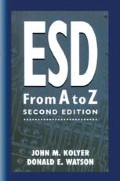Abstract
“The Place of Theory in a World of Facts” is vintage Eysenck: erudite, acute, wide-ranging, and provocative. There is much in it that I endorse with enthusiasm. The distinction between strong and weak theories appears to me to be a valuable one, and Eysenck’s emphasis on the utility and importance of weak theories is timely and right on target. During the last decade the Popperian picture of science has become widely known and quite influential in scientific circles. Unfortunately, the popularized version is a relatively crude Popperianism which wields the criterion of falsifiability like a cudgel not a scalpel. Eysenck rightly notes that the premature application of Popperian strictures to weak theories may choke off innovative theories before they have had the chance to demonstrate their value. Also to be applauded is Eysenck’s brief for the integration of experimental and correlational metatheories. He has mounted a compelling case for the claim that theorists in either metatheoretical tradition neglect theories in the other only at the risk of missing important generalizations and trivializing their own findings.
Access this chapter
Tax calculation will be finalised at checkout
Purchases are for personal use only
Preview
Unable to display preview. Download preview PDF.
References
Anderson, J. R. (1976). Language, memory and thought. Hillsdale, NJ: Lawrence Erlbaum.
Fodor, J. A. (1981). “Something on the state of the art” In J. A. Fodor, Representations. Cambridge, MA: MIT Press.
Gould, S. J. (1981). The mismeasure of man. New York: W. W. Norton.
Haugeland, J. (1981). “Semantic engines: An introduction to mind design.” In J. Haugeland, (Ed.), Mind design. Cambridge, MA: MIT Press.
Newell, A., & Simon, H. A. (1972). Human problem solving. Englewood Cliffs, NJ: Prentice- Hall.
Schank, R., & Abelson, R. (1977). Scripts, plans, goals and understanding. Hillsdale, NJ: Lawrence Erlbaum.
Author information
Authors and Affiliations
Editor information
Editors and Affiliations
Rights and permissions
Copyright information
© 1985 Plenum Press, New York
About this chapter
Cite this chapter
Stich, S.P. (1985). Theory, Metatheory, and Weltanschauung. In: Madsen, K.B., Mos, L.P. (eds) Annals of Theoretical Psychology. Springer, Boston, MA. https://doi.org/10.1007/978-1-4613-2487-4_4
Download citation
DOI: https://doi.org/10.1007/978-1-4613-2487-4_4
Publisher Name: Springer, Boston, MA
Print ISBN: 978-1-4612-9507-5
Online ISBN: 978-1-4613-2487-4
eBook Packages: Springer Book Archive

